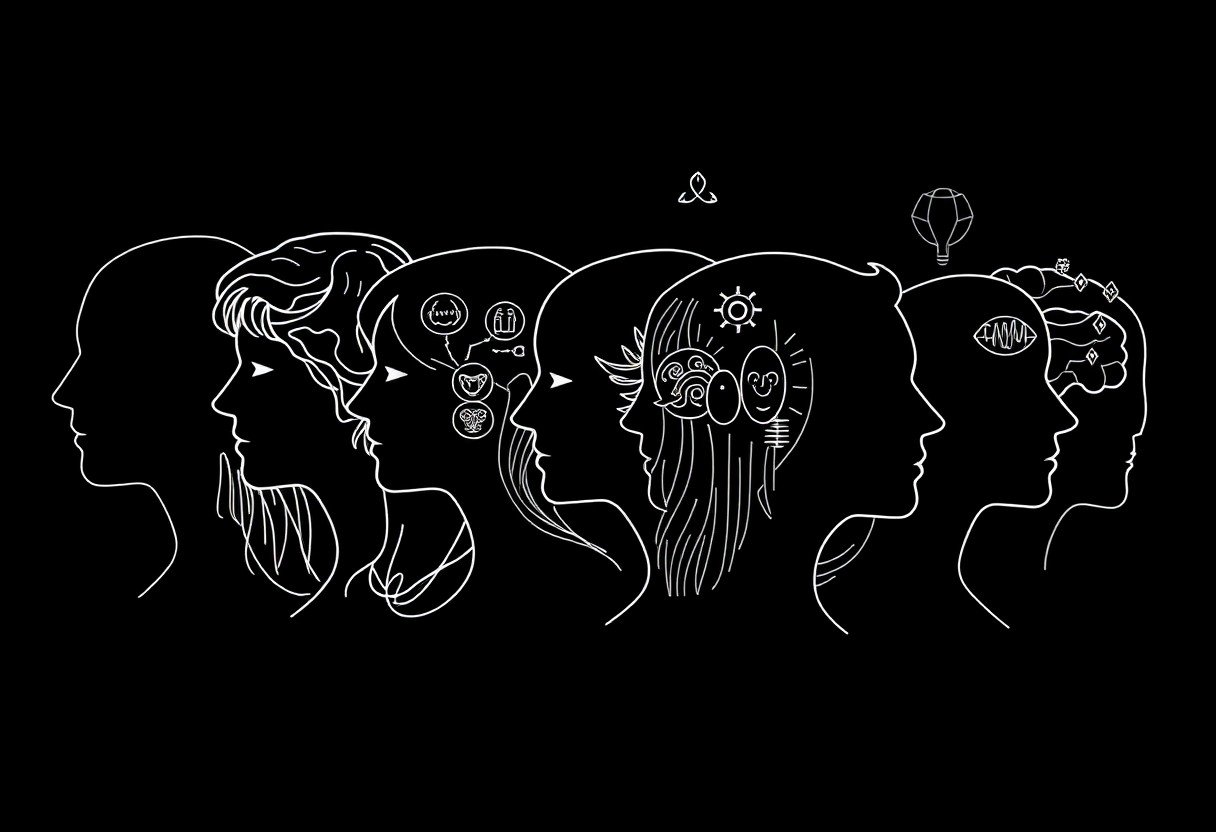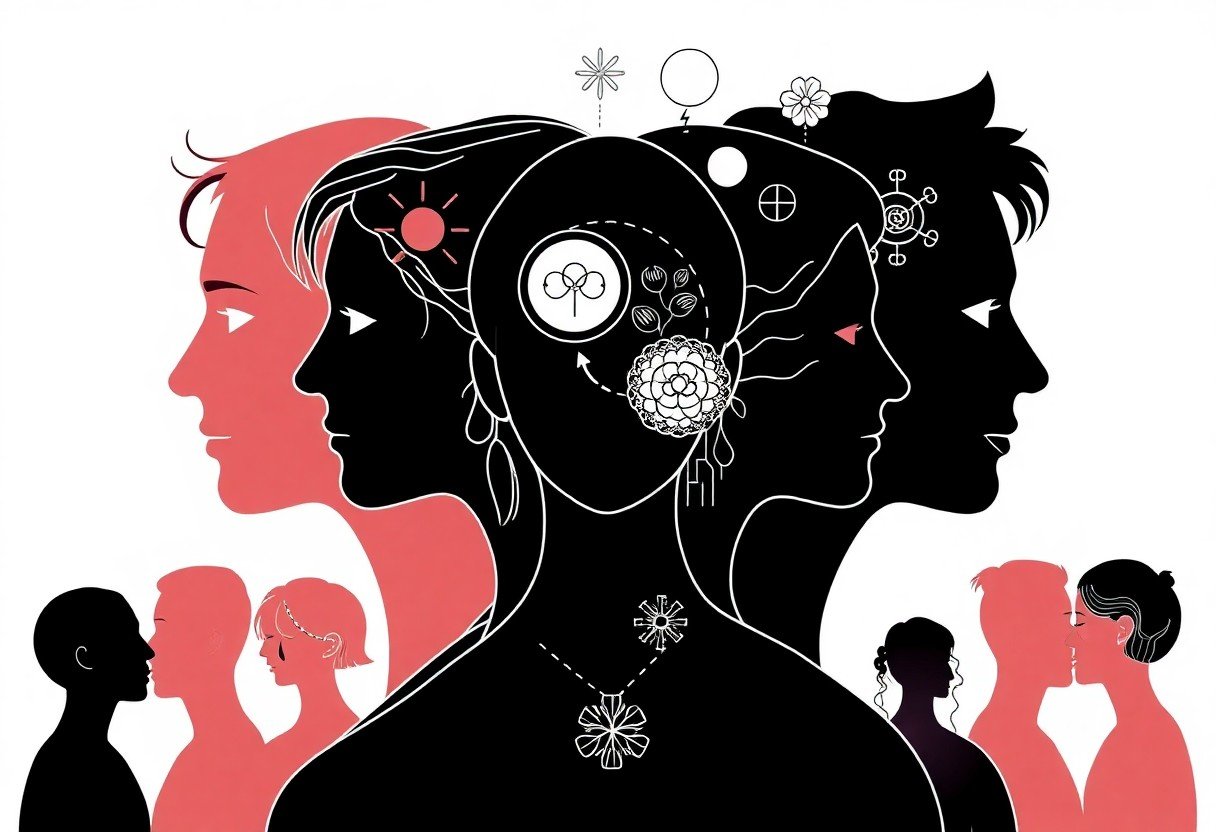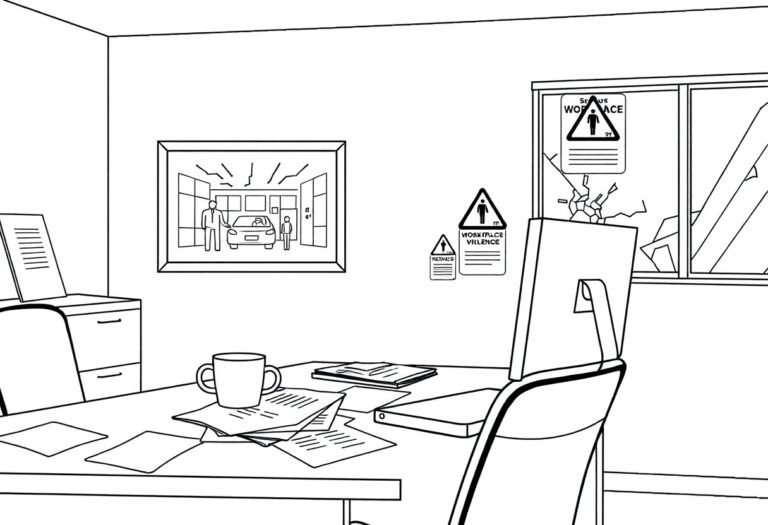Personality Disorders: Beyond the Stereotypes
It’s time to challenge the stigma surrounding personality disorders and understand the reality of these complex conditions. Many people in the UK grapple with misconceptions that can perpetuate fear and misunderstanding. By exploring the various types of personality disorders, their symptoms, and the path to effective treatment, you can gain a deeper insight into how support and understanding can lead to recovery and improved quality of life.
Key Takeaways:
- Personality disorders are complex mental health conditions that can significantly impact an individual’s thoughts, behaviors, and relationships.
- They are categorized into three clusters: A (odd/eccentric), B (dramatic/emotional), and C (anxious/fearful), each with distinct types such as BPD, NPD, and Avoidant Personality Disorder.
- Common symptoms may include emotional instability, difficulties in interpersonal relationships, and challenges in managing behavior, which vary across the different types of personality disorders.
- Misconceptions about personality disorders often stem from media portrayals, leading to stigma and misunderstanding of those affected by these conditions.
- Effective treatment options are available, including dialectical behavior therapy (DBT), long-term therapy, and support groups, helping individuals lead fulfilling lives despite their challenges.
Understanding Personality Disorders
To fully grasp the complexities of personality disorders (PDs), it’s vital to go beyond stereotypes and acknowledge their prevalence in everyday life. PDs affect around 1 in 20 individuals in the UK, and understanding their nuances can help reduce stigma and foster compassion. With the right support, many individuals can lead fulfilling lives despite their challenges.
Definition and Overview
Across various diagnostic criteria, personality disorders are defined as enduring patterns of behavior, cognition, and inner experience that deviate markedly from cultural expectations. These patterns typically manifest in areas such as emotional regulation, interpersonal relations, and self-image, leading to significant impairments in daily functioning.
The Importance of Recognition
Against a backdrop of misunderstanding, recognizing personality disorders is vital for effective intervention and support. People with PDs often experience intense emotional suffering and isolation, which can lead to detrimental outcomes if left unaddressed. Spotting early signs can empower you or your loved ones to seek help and launch on a path toward healing and recovery.
Overview of recognition involves understanding it as a pathway to empathy and support. In the UK, misdiagnosis and stigma can exacerbate feelings of isolation for those affected by personality disorders. When you acknowledge the signs and symptoms, it opens the door to early interventions that can significantly improve quality of life. By fostering open conversations about PDs, you contribute to dismantling the stigma and encouraging a more accepting environment for those in need of help.
Types of Personality Disorders
Some individuals may experience various forms of Personality Disorders that significantly impact their behavior and relationships. These disorders are categorized into three clusters, each with its own unique characteristics:
| Cluster A | Odd or Eccentric |
| Cluster B | Erratic or Dramatic |
| Cluster C | Anxious or Fearful |
| Examples | Schizoid, Antisocial, Avoidant |
| Diagnosis | Based on symptoms |
Cluster A Disorders
Personality disorders in this cluster are characterized by odd or eccentric behaviors. These include Paranoid Personality Disorder, Schizoid Personality Disorder, and Schizotypal Personality Disorder, each presenting its own set of challenges. People may struggle with social interactions and emotional expression, which can impede their relationships and overall quality of life.
Cluster B Disorders
Disorders in this cluster are marked by dramatic, emotional, or erratic behavior. Conditions such as Borderline Personality Disorder (BPD), Narcissistic Personality Disorder (NPD), and Antisocial Personality Disorder fall under this category. These disorders often lead to intense interpersonal conflicts and emotional instability.
For instance, individuals with BPD may oscillate between intense emotions like love and hate, and those with NPD may exhibit an inflated sense of self-importance. Understanding these disorders helps foster empathy and clarity in your relationships with affected individuals.
Cluster C Disorders
The personality disorders in this cluster revolve around anxious and fearful behavior. Examples include Avoidant Personality Disorder, Dependent Personality Disorder, and Obsessive-Compulsive Personality Disorder. Individuals with these disorders often experience significant anxiety in social situations.
Disorders like Avoidant Personality Disorder can lead you to avoid social interactions due to overwhelming fears of rejection. Conversely, those with Obsessive-Compulsive Personality Disorder might prioritize order and perfection, which can impact their daily functioning. Understanding these nuances can assist in building more supportive environments for those affected.

Symptoms and Diagnosis
Unlike what many believe, personality disorders (PDs) manifest in diverse ways and can greatly impact your daily life. Symptoms may include unstable moods, impulsive behaviors, and difficulties in relationships. Recognizing these symptoms early is vital for effective management and support, as PDs are treatable conditions. By seeking help, you open the door to a better understanding and improved quality of life.
Common Symptoms
After identifying specific traits, you may notice some common symptoms associated with personality disorders. These can include intense emotions, fear of abandonment, chronic feelings of emptiness, or difficulty establishing stable relationships. Each personality disorder presents unique challenges, which can vary widely from person to person.
Diagnostic Criteria
Between the various types of personality disorders, specific diagnostic criteria help mental health professionals make accurate assessments. DSM-5 guidelines outline imperative characteristics that must be present for a diagnosis, including enduring patterns of behavior that deviate from cultural norms and lead to significant distress or impairment in functioning.
Also, it’s important to know that a mental health professional will evaluate you based on your history and the intensity of your symptoms. They will consider factors such as the duration of behavioral patterns and their impact on your life. Diagnostic criteria typically require that the symptoms are persistent, causing significant distress or impairment in your social, occupational, or other critical areas of functioning. Understanding these criteria helps in recognizing that with the right support, it is possible for you to manage your condition effectively.
Myths and Misconceptions
Many people hold misconceptions about personality disorders, often influenced by societal stereotypes and media portrayals. These myths can perpetuate stigma and hinder understanding, leading to fear and avoidance of those experiencing these challenges. Effective treatments are available, and individuals can lead fulfilling lives with the right support. Personality disorders are not synonymous with dangerous behavior, and addressing these myths is key to fostering a more informed perspective.
Stereotypes in Society
Many stereotypes surrounding personality disorders contribute to societal misconceptions. Here are some common beliefs:
- People with BPD are manipulative
- Narcissism equals self-love
- Avoidant individuals dislike people
- All personality disorders are untreatable
- Personality disorders are just excuses for poor behavior
Recognizing these misconceptions allows for a more compassionate and informed dialogue about personality disorders.
Media Influence
Society’s perception of personality disorders is significantly shaped by media representation. Misinformation often portrays individuals with these conditions as violent or irrational, creating fear and misunderstanding. Television shows and films can exaggerate behaviors, leading to harmful stereotypes that overshadow reality. It’s important to understand that such portrayals do not reflect the experiences of most people living with personality disorders, who can lead normal lives with effective support.
Consequently, the impact of media portrayals on public perception is profound and often damaging. A balance must be struck, as sensationalized representations can lead to misplaced fears and increased stigma. Recognizing the difference between fact and fiction can foster understanding, allowing you to approach individuals with personality disorders with empathy and knowledge, rather than judgment. It’s important for you to seek accurate information to combat these stereotypes and support those affected realistically and compassionately.
Treatment Options
Now, you can explore various treatment options for personality disorders that can significantly improve your quality of life. These treatments, when tailored to your specific needs, can help you manage symptoms and build healthier relationships. Most individuals benefit from a combination of psychotherapy and support services, as they provide tools to understand and cope with challenges associated with personality disorders.
Psychotherapy Approaches
Behind every effective treatment is a strong foundation of psychotherapy. Approaches like Dialectical Behavior Therapy (DBT) and Cognitive Behavioral Therapy (CBT) focus on helping you develop coping skills, enhance emotional regulation, and improve interpersonal effectiveness. Engaging with a trained therapist can create a supportive environment for you to explore your thoughts and behaviors, encouraging personal growth and healing.
Medication and Support
The right medication can be an important part of your treatment plan, especially for managing symptoms of co-occurring mental health issues such as anxiety and depression. While medication alone does not treat personality disorders, it can help stabilize mood and reduce specific challenges. It’s crucial to consult with a healthcare provider who can help you navigate the options, as medications like antidepressants or mood stabilizers can be effective. Always be aware that inappropriate use or abrupt discontinuation of medication can lead to serious side effects. Building a support network of family, friends, or peer groups can also enhance your recovery, providing additional perspectives and emotional backing as you work through your treatment plan.
Lived Experiences
Despite the stigma surrounding personality disorders, those who live with them often offer invaluable insights into their journeys. Understanding these experiences can break down stereotypes and highlight the reality that, with appropriate support, individuals can lead fulfilling lives. It’s vital to approach these narratives with empathy and an open mind.
Personal Stories
Across the UK, individuals have shared their stories of living with personality disorders, emphasizing moments of struggle and perseverance. These accounts reveal the complexity of their experiences, as they navigate daily challenges while seeking understanding and acceptance from those around them.
Challenges Faced
For many, living with a personality disorder presents significant challenges, both internally and externally. The stigma can lead to isolation and misunderstanding, making it difficult to seek help and connect with others. Furthermore, the symptoms, such as emotional dysregulation and unstable relationships, can complicate everyday functioning.
Consequently, your journey may involve grappling with feelings of loneliness and frustration as you encounter misconceptions about your condition. You might find that interpersonal relationships become strained, impacting your social life and mental health. The efforts to communicate your feelings and experiences can often be met with dismissal or misunderstanding, making it vital to find supportive networks. However, amidst these challenges, many discover resilience and gain strength through shared experiences, ultimately striving for personal growth and recovery.
Final Words
Ultimately, understanding personality disorders goes beyond the stereotypes and misconceptions that often dominate public discourse. By educating yourself on their complexities, symptoms, and available support, you can contribute to reducing stigma and fostering empathy for those affected. Acknowledging the nuances of these disorders empowers you to engage thoughtfully and compassionately with individuals who navigate these challenges, promoting a more inclusive society where everyone has access to the treatment and understanding they deserve.
FAQ
Q: What are personality disorders?
A: Personality disorders are a group of mental health conditions characterized by enduring patterns of behavior, cognition, and inner experience that deviate significantly from cultural expectations. These patterns are stable over time and across various situations, leading to difficulties in functioning socially, at work, and in relationships. Common types include Borderline Personality Disorder (BPD), Narcissistic Personality Disorder (NPD), and Avoidant Personality Disorder, each with its unique traits and challenges.
Q: How are personality disorders diagnosed?
A: Diagnosis of personality disorders typically involves a thorough assessment by a mental health professional, which may include interviews, questionnaires, and observations. The clinician will consider the individual’s history, behaviors, and emotional responses against established diagnostic criteria from sources like the DSM-5 (Diagnostic and Statistical Manual of Mental Disorders). It is important for the diagnostic process to consider the duration and intensity of symptoms to differentiate between personality disorders and other mental health conditions.
Q: What causes personality disorders?
A: The development of personality disorders can be influenced by a combination of genetic, environmental, and psychological factors. Childhood trauma, such as abuse or neglect, can play a significant role, as can challenging family dynamics and unstable environments. Additionally, some individuals may have a genetic predisposition that increases their vulnerability to developing these disorders. Understanding these contributing factors is important for effective treatment and support.
Q: What treatments are available for personality disorders?
A: Treatment for personality disorders often involves a combination of psychotherapy, medication, and support groups. Dialectical Behavior Therapy (DBT) is particularly effective for Borderline Personality Disorder, focusing on building skills in emotional regulation, interpersonal effectiveness, and distress tolerance. Long-term therapy, such as Cognitive Behavioral Therapy (CBT), can also help individuals process their experiences and develop healthier coping mechanisms. Peer support groups provide an additional layer of understanding and encouragement.
Q: How can I support someone with a personality disorder?
A: Supporting someone with a personality disorder involves fostering an empathetic and non-judgmental environment. Encourage open communication about their feelings and challenges, and listen actively without minimizing their experiences. It’s important to educate yourself about their specific disorder to better understand their behavior and needs. Additionally, encourage them to seek professional help and, if appropriate, engage in discussions about treatment options and resources available in the UK.







